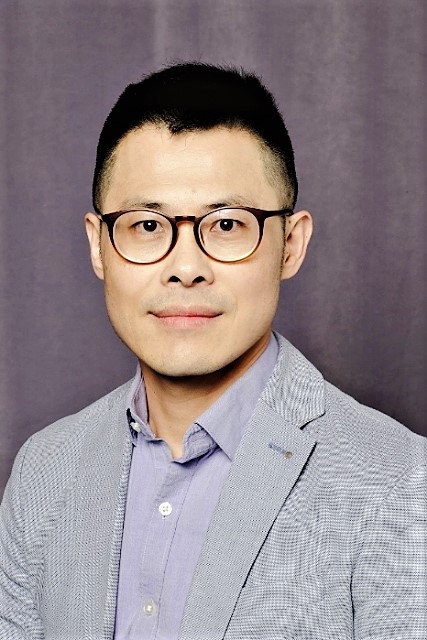Dr. Yanbo Zhang Brings Wide-Ranging Background in Basic Science, Clinical Practice and Education to the Department of Psychiatry
4 August 2020

“I’m from Ningxia, one of the smallest provinces in China. It’s near Inner Mongolia and the land is mostly desert,” he says.
After earning his medical degree and PhD in 2004 at Peking University in Beijing, Dr. Zhang moved to Saskatoon, where he spent the next three years working as a Postdoctoral Research Fellow at the University of Saskatchewan.
From there he moved to the University of Manitoba in Winnipeg, where he completed another Postdoctoral Research Fellowship before returning to the University of Saskatchewan in 2011. He completed his Residency in the Department of Psychiatry in 2016, and was named an Assistant Professor in 2017.
“I have a background in basic science and ran a research lab in Saskatchewan. But I also worked for the Saskatoon Health Region as a psychiatrist, treating patients for mental health conditions including Depression, Bipolar Disorder and Anxiety Disorders. I’ve worked in Emergency, in inpatient treatment, crisis management and outpatient clinics,” he says.
In July, Dr. Zhang joined the University of Alberta’s Department of Psychiatry as an Associate Professor. His wide-ranging responsibilities extend from lab work and clinical duties to classroom teaching and Resident supervision.
“My lab is on the fifth floor of the Katz Group Centre, but I’ll be collaborating closely with Dr. Ian Winship’s lab (in the Neurochemical Research Unit) and Dr. Allen Chan’s lab. Both are experts in Neuroscience and I’m looking forward to working with them,” he says.
Dr. Zhang’s research is primarily focused on the impacts that psychiatric medications and brain stimulation treatments have on brain development and brain recovery or repair.
“On the clinical side I’ll be working in the rTMS (Repetitive Transcranial Magnetic Stimulation) clinics, including the one downtown (on 108 Street) and in the Day Hospital at Alberta Hospital Edmonton. I’m also interested in Machine Learning since there is a very strong research team here, and I remain involved in an ongoing clinical trial in Saskatchewan on treatment-resistant Depression.”
About 20% of Dr. Zhang’s time will be committed to teaching and other educational responsibilities, including Resident supervision.
“In Residency, Neuroscience and Neuropsychopharmacology are sometimes a small part of the training but in future it will be really helpful for Physicians to better understand the impact of medications and the mechanisms behind them. That’s why I’m working with the Resident Program Director to improve and revamp this translational course,” he explains.
“If we look at the types of medical research, there is basic science, or lab-based bench work, and there is epidemiology, using data and population samples. Then there’s clinical trials, and developing treatments for certain target populations. I try to sit in the middle between basic science and clinical applications. I want to use my background as a Physician and as a Neuroscientist to link these things together.”
Dr. Zhang is particularly interested in exploring the potential treatment benefits of novel therapies such as Medical Cannabis and Low Field Magnetic Stimulation (LFMS).
“We know that Medical Cannabis contains CBD (Cannabidiol) and THC (Tetrahydrocannabinol), but there are also other components that play different roles to modulate or make treatments more beneficial. In my research I’m using animal models to try to tease out which component or combination of components can actually help patients, but not increase the risks for addiction or other harmful side effects associated with traditional use of Cannabis,” he says.
Dr. Zhang’s research on brain magnetic stimulation therapy is focused on LFMS, which is a less intensive version of rTMS.
“Traditional rTMS delivers high-energy magnetic stimulation to trigger the activity of the Neurons and to change the Neuroplasticity of the brain. But LFMS is a different concept. We refer to it as ‘under threshold,’ which means it’s only 5% to 10% as intense as rTMS. It’s not aimed at generating neuronal activity, but at changing the micro environment,” he says.
“Also, compared to the traditional rTMS treatments, it’s very low cost and is delivered using very small, portable equipment. You don’t need a technician or nurses to deliver treatment. It can be done at home, so it’s very accessible, very easy to use and low cost. There have been several clinical studies done on it in the U.S. and in China, and for patients who have had treatment-resistant Depression, some showed significant improvement.”
Dr. Zhang has obtained Health Canada approval to conduct a clinical trial of LFMS in Saskatoon, where he remains part of the Neuroscience Cluster at the University of Saskatchewan, and Secretary-Treasurer and Director, Saskatchewan, with the Canadian Psychiatric Association.
“LFMS is commercially available in China, but it took me two years to get Health Canada’s approval for our clinical trial. I’m the only one in Canada who is using this equipment right now. I collaborated with a company that provided this special equipment and have the authority to modify the equipment settings so I can optimize the treatment.”
Although his responsibilities are broad in his new role with the Department of Psychiatry, Dr. Zhang says he wouldn’t have it any other way. He clearly loves variety and dealing with a wide range of challenges, from basic science to clinical practice.
“When I have a setback in my research, the clinic becomes my Shangri La. It makes me feel great when I see patients improve and I feel useful. On the other hand, when I have challenges in my clinical practice, I turn them into research projects,” he says.
“It’s the same when I see Residents or medical students learning and picking up knowledge. That tells me my efforts have really paid off. I’m probably just too greedy,” he jokes. “I don’t want to give any of these things up.”